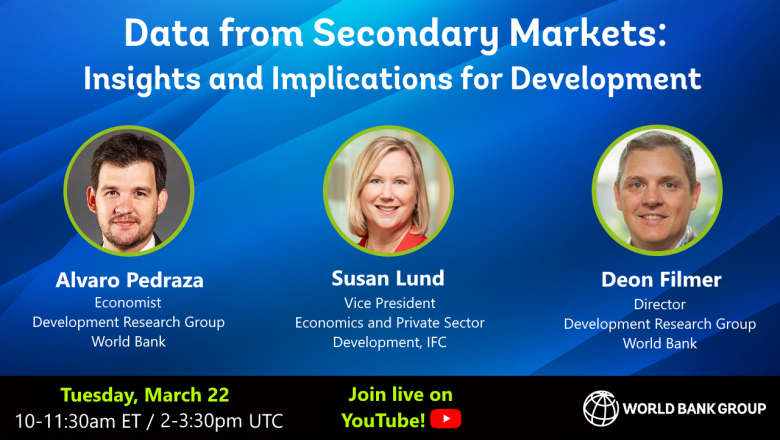Event Materials
Presentation (PDF)
Papers:

Since the Great Recession cross-border financial assets have grown nearly 60 percent. While cross-border bank lending has stayed relatively constant, cross-border portfolios and market-based finance have grown tremendously. This trend has been compounded by market opaqueness, with limited information on the portfolios of non-bank financial institutions and individual investors potentially hiding significant risk in the global financial system.
In this talk, World Bank economist Alvaro Pedraza will shed light on this pressing issue with recent insights from the Colombian Stock Exchange (CSE). The CSE, which is the sole authorized trading venue for Colombian stocks, provides detailed information on the transactions of the universe of investors participating in the market. The comprehensive data set is useful in addressing several key questions about the role of global and domestic investors in capital markets: (i) What is the response of different classes of foreign investors to monetary policy shocks or to equity/debt index rebalancing? Relatedly, how do changes in the demand of foreign investors affect the financing of domestic firms? (ii) What is the role of domestic institutional investors? Do they enhance liquidity and price discovery, and more generally, are they catalysts for market development? (iii) What is the behavior of individual investors? Do social interactions improve financial decision making or is investor communication through social networks a conduit for spreading biases and investment mistakes?
Together, the answers to these questions can provide greater insight into the risks faced by emerging markets, guide national policy makers on how to better manage risks to their countries’ economies, and provide new evidence for international regulators concerned about the state of global financial markets.
The monthly Policy Research Talks showcase the latest findings of the World Bank’s research department, challenge and contribute to the institution’s intellectual climate, and re-examine conventional wisdom in current development theories and practice. These talks facilitate a dialogue between researchers and operational staff and inform World Bank operations both globally and within partner countries. Read More »